Five Books for Your 1st Year as a PhD student in Music and Science
When you first dive into the field of music and science as a graduate student, you might be tempted to dive straight into your niche and start reading anything and everything related to your thesis topic. Reading is never really a bad thing, since it’s a skill that you are practicing, and it’s important to read early and often because you never really know what is going to be helpful or useful for your own work at any point in the future.
But as much as I subscribe to the “read voraciously, don’t worry about if it’s relevant” approach, not all reading (in my opinion!) is going to equally helpful for early stage graduate students in music and science. I distinctly remember trying to read “the literature” early on and just having this feeling that I lacked a good mental model that allowed me to place everything I did read in context in a deeper way. And if you’re the only one in your department who works at this overlap, it’s hard to get those coffee break chats with colleagues that help you fill in the gaps.
During grad school I read a lot, something I continue to do and now see as one of my strengths, but retrospectively, I could have been a bit more efficient about what I did read and when. So of course I want to share what I did learn from others.
As the title suggests, I want to list five books that I wish would have just happened to be the first five that I read in my PhD that helped me link up with the larger context of the sciences and my reasons for suggesting them.
I’ll also note that I think this list is especially helpful for people like me who find themselves mostly in humanities departments and feel like there are just big gaps in fundamental concepts and values between yourself and your scientific colleagues.
Explaining Psychology as Science: Zoltan Dienes
This book is, by far, the first and foremost book I wish I would have read early on in my PhD.
Or at least the one where things started to “click”" for me after reading. I came across this book after watching several of Daniel Lakens’s online lectures from his course Improving Your Statistical Inferences and if I remember correctly, this was a resource he suggested for learning more about statistical inference.
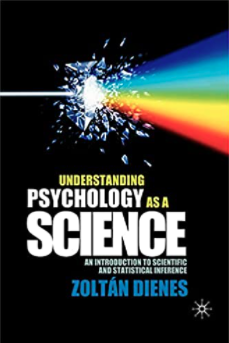
The book is actually quite short and is divided into five chapters that give an overview of many of the important schools of thought that influence how we as scientists how to think broadly about uncertainty.
These include:
- Karl Popper and demarcation
- Kuhn and Lakatos: paradigms and programmes
- Neymen, Pearson, and Hypothesis testing
- Bayes and the probability of hypotheses
- Fisher and likelihood: the Royall road to evidence
The books is accessibly written (though not a fast read!) and has several questions at the end of each chapter to check your understanding of the materials. What the book did for me is disentangle the many traps you can fall into doing empirical work (problem of induction, what does it mean for science to ‘progress’, why do people argue about schools of statistical reasoning?) and provide one historical context (reminding you that research is just real people trying to solve real problems) for why things are the way they are today.
After reading more about the bigger philosophical backdrop of why something like null hypothesis significance testing (NHST) is used to sidestep the problem of induction, stats just started making more sense to me in a way I find hard to describe retrospectively. For me, it was the linking of stats to the larger scientific and philosophical problems that moved stats from something you need to do to, to something you will really start to care about if you care about your research.
Reading both the Neymen-Pearson and Bayesian chapters really made me question if I did think there is an outside objective world with regular stable properties that we can measure? Or instead if our understanding of the world can only be reflected in a subjective, inductive way? And how would we accept the latter, knowing it’s difficult, if not impossible, to have subjective notions of probability without objective notions of probability?
Reading this book then inspired me to go on and read many of the classics that are discussed like The Structure of Scientific Revolutions, Agaist Method, and a few more contemporary books that I have yet to read like Statistical Inference as Sevre Testing.
Other people I have recommended this book to have felt similarly.
What Is This Thing Called Science?: Alan Chalmers
In the same vein, but more broad in its scope is What is this Thing Called Science by Alan Chalmers. The book is in its Fourth edition (or at least the one that I have) and is a broad overview of many more of the topics covered in the book above.
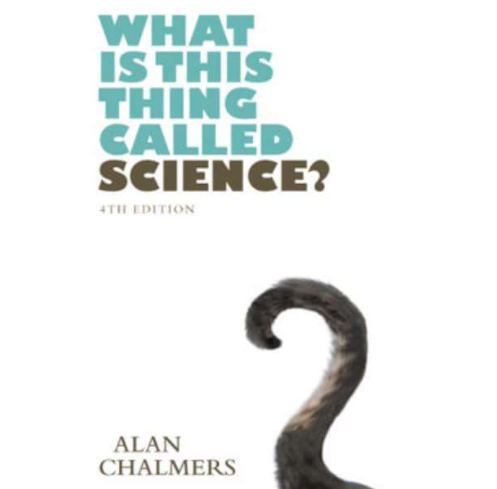
There is some considerable overlap in terms of content, but just addresses it from another angle. It’s a fantastic introduction to the philosophy of science and gives many of the tools for thinking help avoid common mistakes in thinking about the larger picture of what we are doing when we try to do “science” (whatever that is).
R for Data Science
While the last two books can only be filed under “Introduction to Philosophy of Science”, R For Data Science addresses the maybe more pressing, practical needs of a first year PhD student.
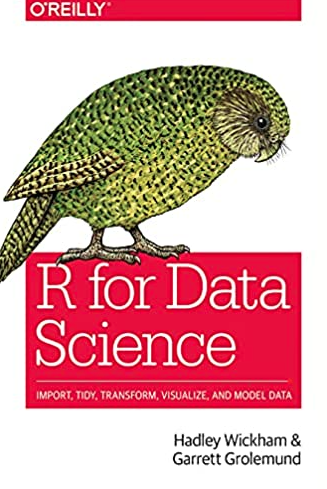
When you start the PhD and are part of a team, either big or small, you can often feel like everyone knows so much more than you and that you have nothing really to contribute to the larger dynamic at first.
If you find yourself in this situation, first all, that’s a good thing, you’d hope that people who have been doing this for years have this expertise. You’ll get to that level eventually (the point of the PhD!).
But in the meantime, you want to feel like you are a part of the team and can contribute to the work in a meaningful way. To assuage this feeling, my best recommendation to slowly learn about all things data in R.
Why R? Why a book that focuses on the tidyverse?
Because in my experience teaching programming, this combination has the fastest potential to get someone from slapdash understanding to actually importing, manipulating, visualising, and sharing data compared to other languages. I say this as someone who has taught both.
Yes, learning Python is probably better in the long run. Yes, you will pick up some weird habits with R as your first real language. But PhD students in the empirical sciences need to be good at stats and all things data and R is great at it.
Cleaning data and making charts is where you will spend the most of your time and with R and the tidyverse, you (with a little bit of help getting rolling) will get you actually doing this the quickest.
Going through this book in particular is good because there are so many practical examples.
The first real chapter is about ggplot2, so you’re making graphs right away.
Like Greg Wilson talks about in Teaching Tech Together, you want to start out teaching something practical so those who are a bit skeptical see the value immediately in the time and energy they are going into learning something.
This book is also great from pedagogical point of view. You have code to copy, specific learning objectives, questions to check for understanding to ask other people about. And if you know this cover to cover, you’re all set for becoming a certfied RStudio Tidyverse Instructor!
Engaging Music
The last two books have been about the science side of music and science. But I often find that the idea of music analysis (or what North Americans call music theory) is quite elusive to many self identified scientists.
So for this reason, I’d suggest Engaging Music edited by Deborah Stein which is collection of accessible analyses from the Western canon.
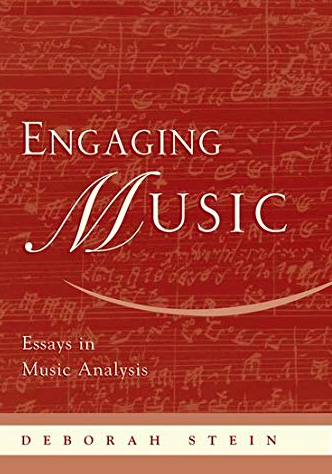
In keeping with suggesting books, this was what came to mind. This suggestion to help kind of explain what music theorists do does suffer a bit from “I will recommend what I read” syndrome, as there might be a much better suggestion now also includes popular music and talks about the issues theorists are thinking about at the moment. I also thought about suggesting the Agawu and Kerman exchange, but wanted to keep this all books.
The point is that I want those doing music and science to be comfortable talking with their (historical/analytical) humanities colleagues. There is a lot of great thinking to be learned from music analysis. Seeing the sensitivity needed to carefully dissect the context and motivation for a specific person at certain point in time making one artistic choice over another in a few analyses will make it obvious why some colleagues see the scientific methods as applied to music as brutal and blunt.
And I think this is best done by actually reading analyses instead of some high level document about the two cultures. You could also try your hand at reading some articles from MTO or the Journal of Music Theory but some of those are just so niche and the writing style assumes so much of the reader that it might be better to start out with something intended for those just getting started in it.
And if any theorists are reading this and have a better updated suggestion, I’d love to know a better reccomendation.
Any Edited Collection
By an edited collection, I mean something like the Oxford Handbook of Music Psychology, the new Routledge Companion to Music Cognition, or The Origins of Musicality. In this suggestion, I don’t imagine you reading this cover to cover like you would read the first three.
The reason I include this recommendation is because it provides a much larger context as to what other people with similar research interests are doing with their time and what they are thinking about.
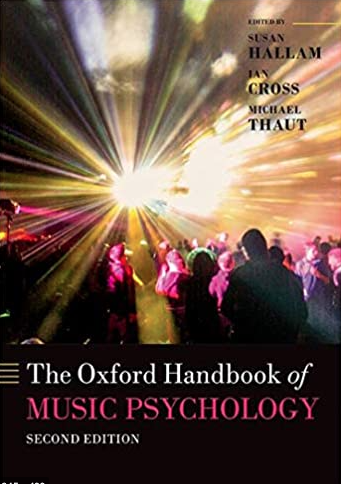
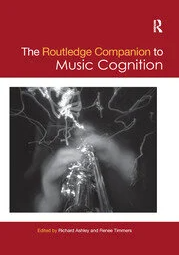
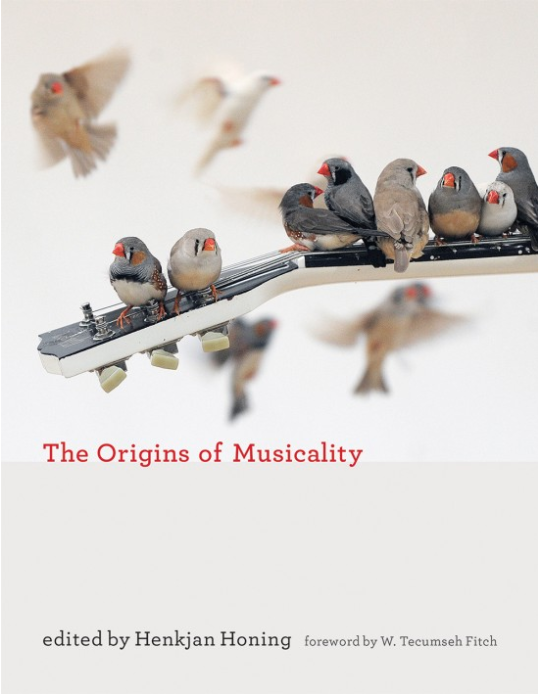
In reading a large collection, you learn who the people are that are considered experts on a topic (you’ll also probably meet many of them one day!) and a lot about writing in that distant, sanitized style that scientific journals often require. These books are fantastic resources for getting a jump on any literature review that you might need to write and will just broaden your research horizons.
While I suggest starting with the ones related to music and science, big, fat edited collections are just gold mines in my opinion for learning about new topics. From my experience talking with those who have written these, authors tend to get a lot of leeway in choosing how and what to include in these and as a result, sometimes write things that would not find its way into journals.
Other edited collections that I’ve got a lot out of are The Cambridge History of Western Music Theory as well as the The Oxford Handbook of Critical Concepts in Music Theory.